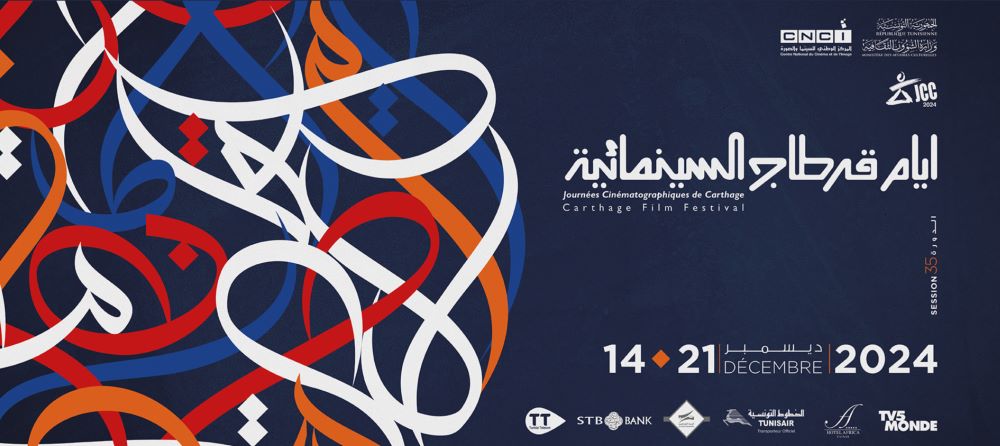North Africa’s longest-running film festival, the Carthage Film Festival (Journées Cinématographiques de Carthage/JCC), is currently celebrating its 35th edition, which began on December 14 and runs through December 21, 2024, in Tunis, Tunisia.

Founded in 1966 as a pioneering platform for African and Arab cinema, Carthage remains steadfast in its mission to champion regional storytelling, even as neighboring festivals have increasingly shifted their focus toward Western industry connections.
The main competition this year includes stories of grief, resilience, and transformation – Senegalese filmmaker Mamadou Dia’s “Demba” follows a civil servant struggling with mental health after his wife’s death, while Tunisian director Lotfi Achour’s “Red Path” tells a story of survival based on true events in Tunisia’s Mghila Mountain region.
The documentaries take on big questions: Mati Diop’s “Dahomey” captures the return of stolen artifacts from France to Benin, while Kamal Aljafari pieces together lost Palestinian history in “A Fidai Film.”

In the short film section, 28 works range from the Nigerian urban culture documentary “Fluid Lagos” to intimate personal tales.
Beyond competitions, the festival presents Jordanian and Palestinian film programs, celebrates Senegalese cinema history, and honors major figures like Iranian director Mohsen Makhmalbaf.
Through Carthage Pro, the festival’s industry arm, new Arab and African projects get development support and connections.
For more coverage of the films, talks, tributes, and industry events at this key platform for regional cinema, subscribe to Akoroko Premium at the link in the bio or copy/paste: https://akoroko.com/subscribe/